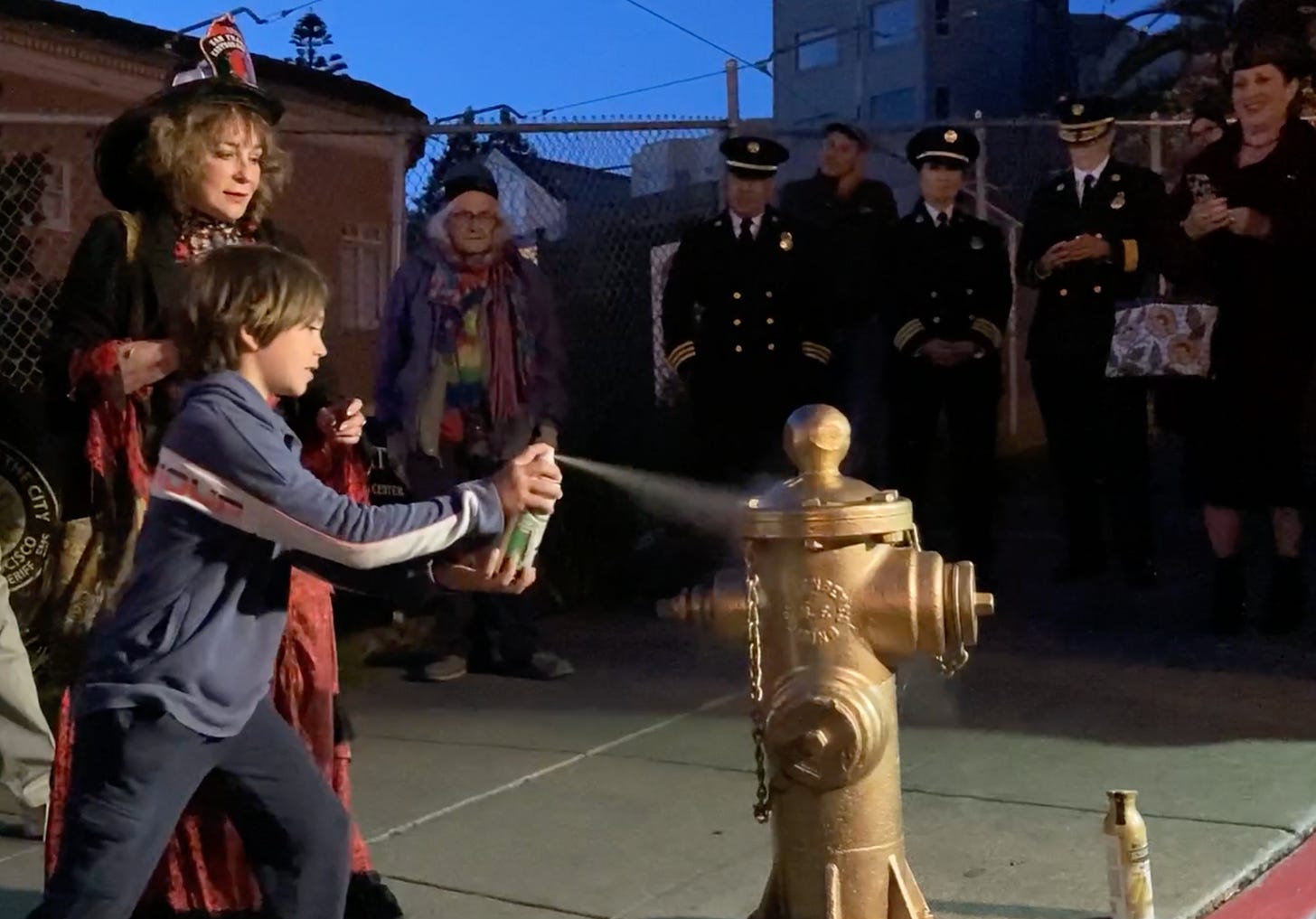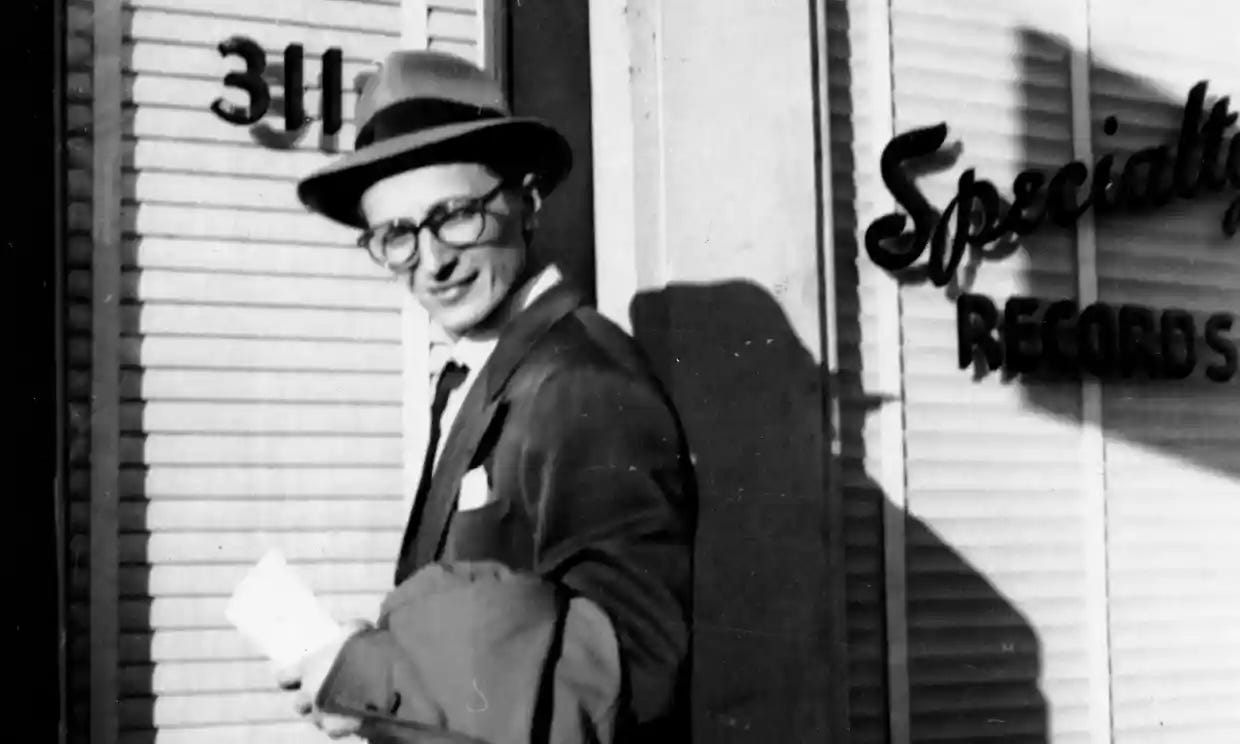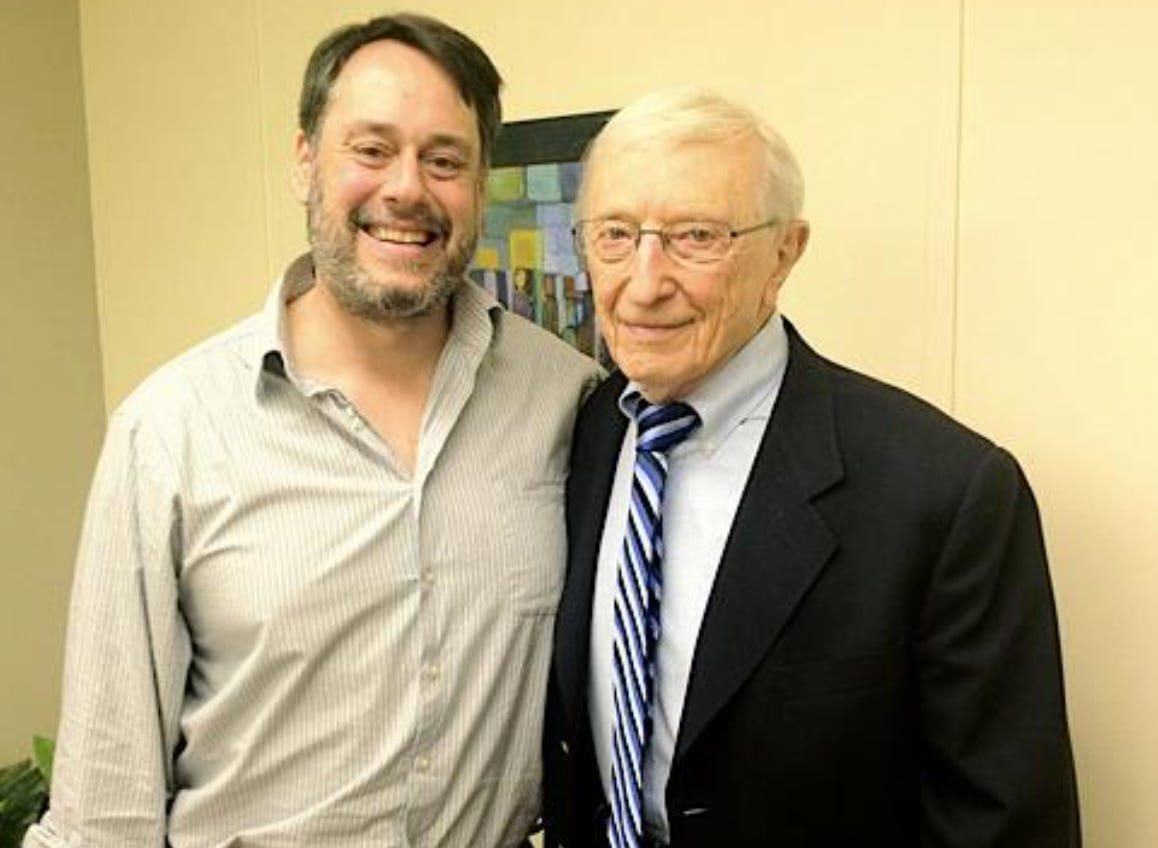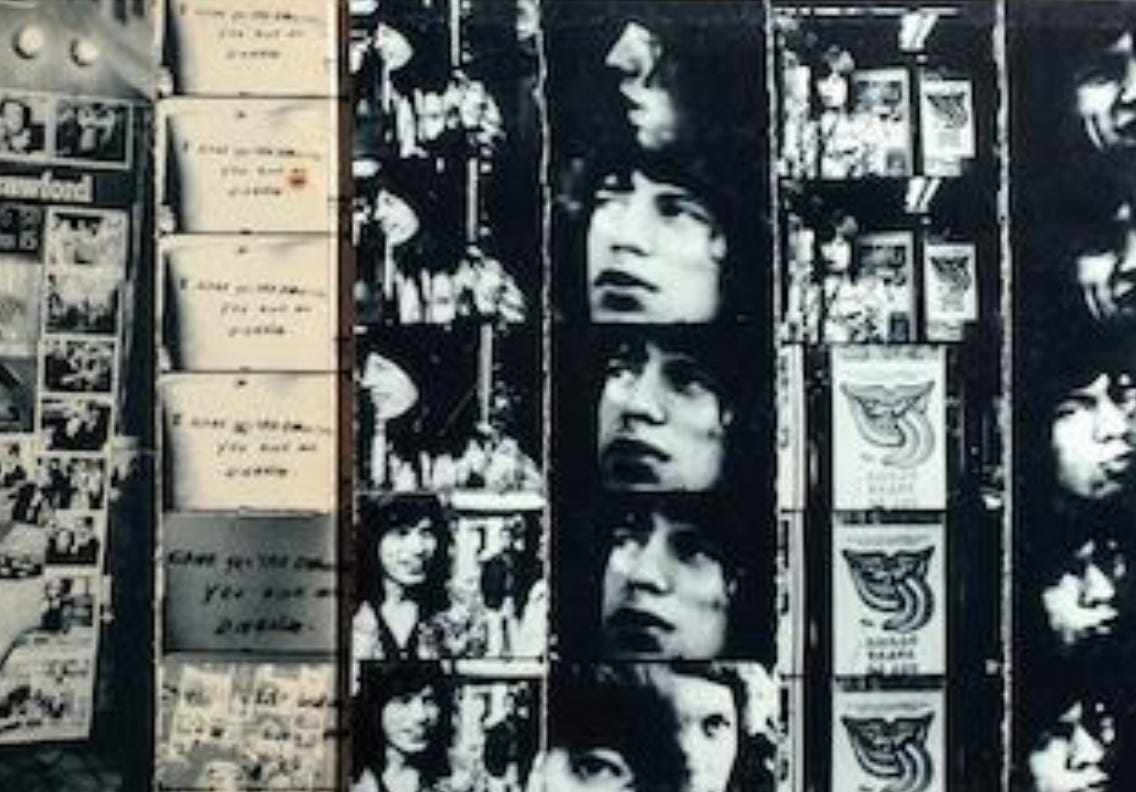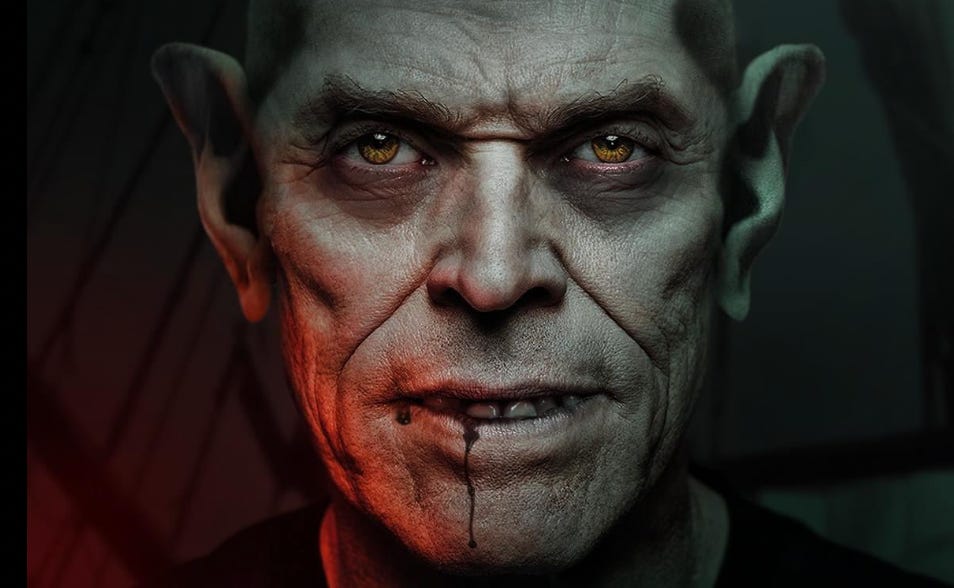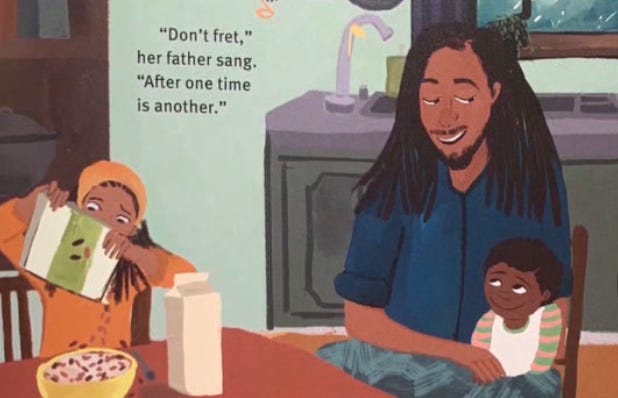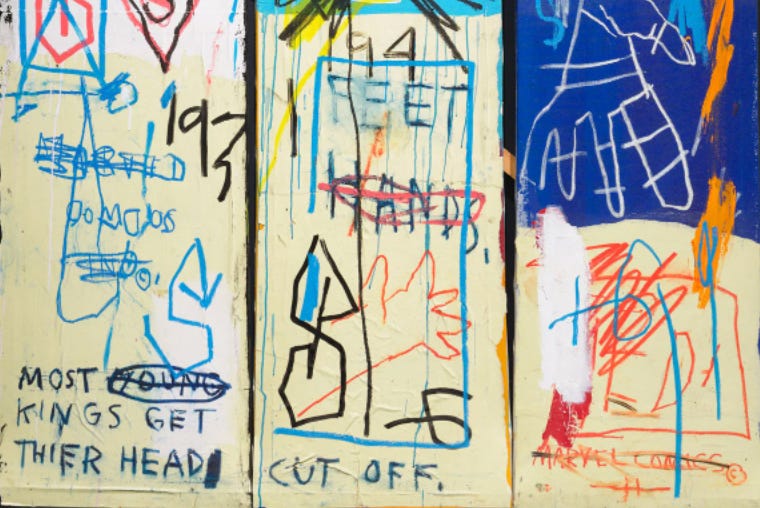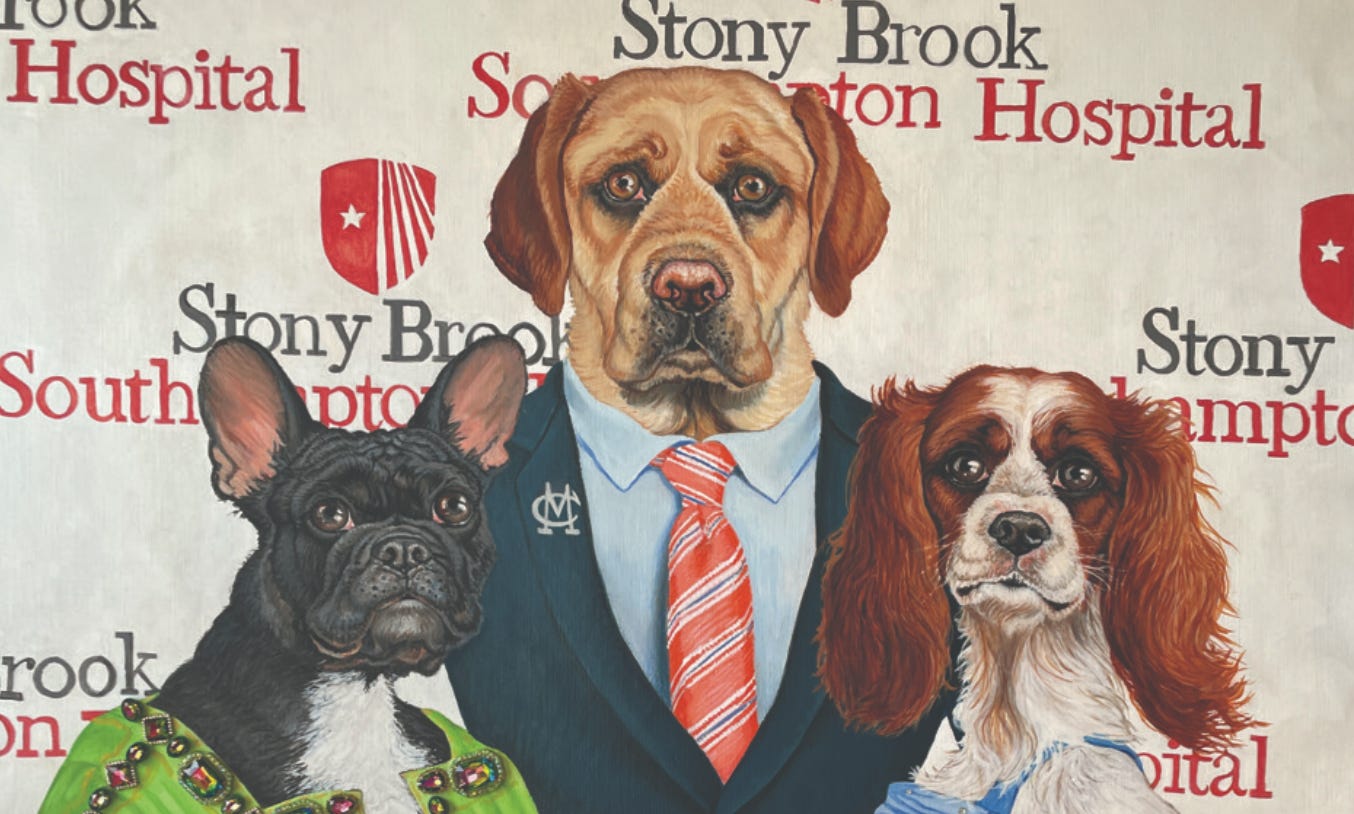· By David Katznelson
Music's Ultimate Specialist
“Suspect each moment, for it is a thief, tiptoeing away with more than it brings.” ― John Updike
Those who regularly read this newsletter will know that for the past decade+ I have been working on a big project around Specialty Records, the label that was quintessential in ushering in the era of Rock n Roll. This past weekend, the owner of the label, Art Rupe, passed away at the age of 104 years old.
Rupe was a master of the mid-20th century music business. He is famous for carefully studying the releases of the day…what was selling, what seemed to make “a hit record” and used his research when signing artists and producing their recordings. And he had hit after hit after hit.
He called his first label Juke Box because that was the only real means of distribution his records could have…through Juke Box sales and play. He called his second label Specialty because he wanted to specialize in African American records, since he saw “a vacuum in what they called at the time Race Records.” Rupe told me when I sat down with him over a decade ago: “I could not think of a good name so I picked out Specialty because I was going to specialize but I was planning on getting a really good name in time. Once you get established, it pays to keep with a name that is working.”
And the Specialty label was working….never losing money on a record. “We had an uncommon run with chart records,” Rupe remembers, “more than we deserved.” The artists Rupe signed could fill up a hall of fame unto itself: Little Richard, Percy Mayfield, Lloyd Price, Sam Cooke (with the Soul Stirrers), Clifton Chenier, Jesse Belvin, Jimmy & Joe Liggins, Smokey Hogg, John Lee Hooker, Roy Milton, Sister Wynona Carr (one of my favorites), The Pilgrim Travelers, Big Maceo and more and more and more. He had huge hits in both the secular and gospel arenas. And for the artists that sold less than others: he kept them on the roster, nurtured and developed them.
Rupe was more than just a businessman. He cared deeply about his artists and the music they made. He produced most of the label’s output, stating “I did very little to change what an artist intrinsically had. I would try and bring it out…accent certain things…handle technical aspects…elicit feeling in the singing. But the talent was there to begin with.”
His work changed music forever.
While Rupe was more than generous to talk to me about his days at Specialty Records, he joked that in his 90+ years of life, he worked on Specialty Records for not even two decades of it…and yet that was the only part of his career people wanted to talk to him about. In his mind, his true impact came later, after he had invested wisely and made a fortune…a fortune he used to establish a philanthropic foundation with a focus on the healthcare industry. He was just a remarkable individual.
RIP Art Rupe. I am sorry you will not get to see the final version of the project I have been working on, but it will celebrate your legacy, or at least one part of it.
Off The Wall: Art, Photography, & The Album Sleeve
“This month, For The Record: Photography & The Art Of The Album Cover opens at The Photographers’ Gallery in London. The show utilises de Beaupré’s extensive record collection as an opportunity to explore the interrelationship of photography and music as manifested in the medium of the album cover.”
Totally excited to see Eggers’ new film The Northman, which will be coming out at the end of the week. And then there is the fact that he is trying to redo Nosferatu….which would be incredible as well.
Bob Marley’s daughter Cedella publishes new children’s book, ‘Marley and the Family Band’
“Cedella Marley has just published another (children’s book) titled, “Marley and the Family Band.” The new book is inspired by Cedella’s childhood and her father the musician Bob Marley.”
“‘King Pleasure,’ a massive exhibition and homage to Jean-Michel Basquiat organized by the late artist’s two sisters, Lisane Basquiat and Jeanine Heriveaux, is comprised of some 100 paintings and drawings long cloistered by the artist’s estate and rarely, if ever exhibited. Designed by starchitect Sir David Adjaye and featuring movie set–like re-creations of the family’s Brooklyn home as well as the artist’s famed Great Jones Street studio, the exhibition, which opened on Saturday at the Starrett-Lehigh Building in West Chelsea, feels a bit like visiting Marcel Proust’s bedroom at the Musée Carnivalet or Brancusi’s studio at the Centre Pompidou in Paris.”
Southampton History Museum Explores Pets in New Exhibition
“Open May 4 to December 31, Puppies, Ponies & Pussycats: Tails of Southampton looks at the relationship between humans and our animals, how that relationship has changed, and what hasn’t changed, over the past 150 years.”
Maggid
BY MARGE PIERCY
The courage to let go of the door, the handle.
The courage to shed the familiar walls whose very
stains and leaks are comfortable as the little moles
of the upper arm; stains that recall a feast,
a child’s naughtiness, a loud blattering storm
that slapped the roof hard, pouring through.
The courage to abandon the graves dug into the hill,
the small bones of children and the brittle bones
of the old whose marrow hunger had stolen;
the courage to desert the tree planted and only
begun to bear; the riverside where promises were
shaped; the street where their empty pots were broken.
The courage to leave the place whose language you learned
as early as your own, whose customs however dan-
gerous or demeaning, bind you like a halter
you have learned to pull inside, to move your load;
the land fertile with the blood spilled on it;
the roads mapped and annotated for survival.
The courage to walk out of the pain that is known
into the pain that cannot be imagined,
mapless, walking into the wilderness, going
barefoot with a canteen into the desert;
stuffed in the stinking hold of a rotting ship
sailing off the map into dragons’ mouths,
Cathay, India, Siberia, goldeneh medina
leaving bodies by the way like abandoned treasure.
So they walked out of Egypt. So they bribed their way
out of Russia under loads of straw; so they steamed
out of the bloody smoking charnelhouse of Europe
on overloaded freighters forbidden all ports—
out of pain into death or freedom or a different
painful dignity, into squalor and politics.
We Jews are all born of wanderers, with shoes
under our pillows and a memory of blood that is ours
raining down. We honor only those Jews who changed
tonight, those who chose the desert over bondage,
who walked into the strange and became strangers
and gave birth to children who could look down
on them standing on their shoulders for having
been slaves. We honor those who let go of every-
thing but freedom, who ran, who revolted, who fought,
who became other by saving themselves.
